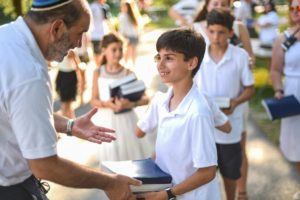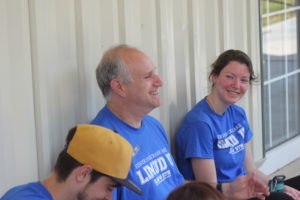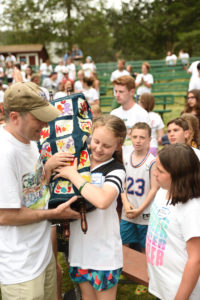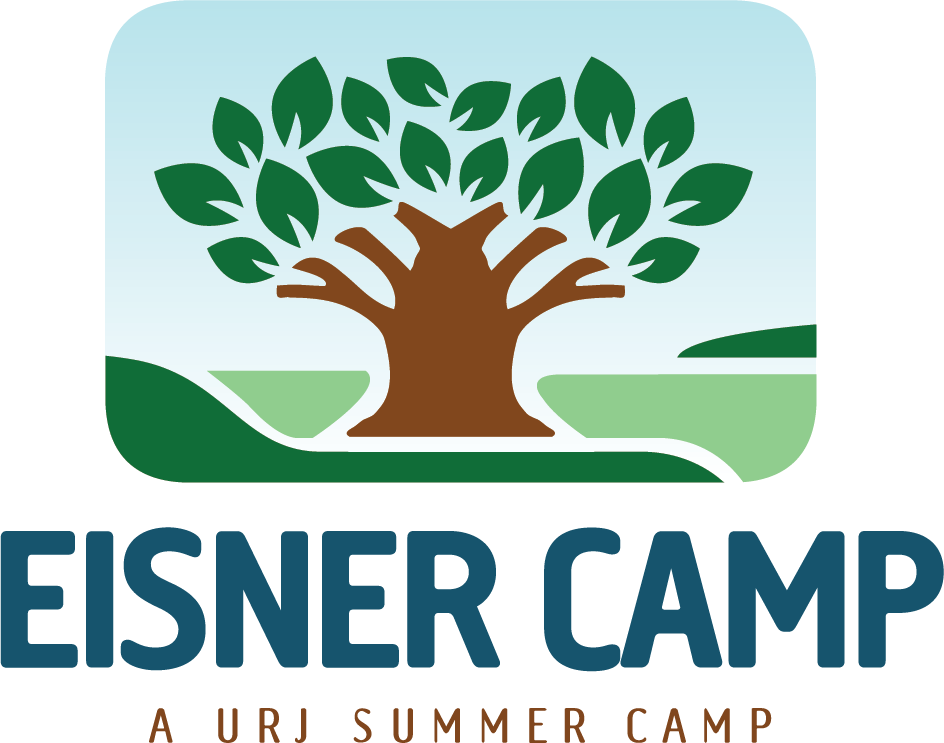by Rabbi Matt Cutler; Congregation Gates of Heaven, Schenectady NY; Dean of Faculty, URJ Eisner and Crane Lake Camps
Lech l’cha… m’artzicha, u’mimoledet’cha, u’mibeit avi’cha…. Go forth from your land, from the place of your birth and from the house of your father….
We speak of Abraham’s journey as the start of the unique covenantal relationship that we have inherited. Lech l’cha… it is a single journey, written in the singular as a command; but it is not taken alone. While God spoke to Abraham, he didn’t sojourn by himself. Sarah went with him and so did Lot. While the text does not focus in on this partnership in chapter 12, these bonds were significant in Abraham’s life. Even more so, we can suppose that they were important each step of the way as he went forth: m’artzicha, u’mimoledet’cha, u’mibeit avi’cha. Abraham got the call, but Lot and Sarah made the journey with him. These partnerships were apparent. They might have been equal in status; the text does not speak of them so perhaps they were silent partnerships. Yet, the impact of them is found in Torah. Look at the story of Sodom and Gomorrah; see what was done for Lot’s benefit. Examine the story Sarah and Hagar; notice the bond of love that Abraham had for Sarah.
In our congregations, we have some very present silent partners when it comes to shaping Jewish souls. Louis Bordman, Debby Shriber and Greg Kellner as well as the assistant camp directors should be present constantly in our synagogues; even if they cannot physically be there. Let’s face it—we can learn a lot from these people. For me, I have learned as much from our camp directors than I had from my professors at HUC. While my teachers have unlocked the secrets of traditional texts, the majesty of Jewish thinking and the marvels of Jewish history; ou r Camp Directors shape lives through passionate engagement, irreplaceable memories and relevant Jewish encounters. These people embody what we should be as Jewish professionals in the 21st century: part scholar, part salesman, part therapist, part visionary, and part carnival barker. These people model what it means to have Jewish souls that are useful in daily lives. They encourage us to see Judaism as fun rather than drudgery. They create memories that help Jewish souls deal with challenges of being alive. In this era, every Jewish kid is a Jew-by-choice; they are going to choose whether Judaism is relevant and with a 95% retention rate year after year, camp directors are on to something!
r Camp Directors shape lives through passionate engagement, irreplaceable memories and relevant Jewish encounters. These people embody what we should be as Jewish professionals in the 21st century: part scholar, part salesman, part therapist, part visionary, and part carnival barker. These people model what it means to have Jewish souls that are useful in daily lives. They encourage us to see Judaism as fun rather than drudgery. They create memories that help Jewish souls deal with challenges of being alive. In this era, every Jewish kid is a Jew-by-choice; they are going to choose whether Judaism is relevant and with a 95% retention rate year after year, camp directors are on to something!
Lech l’cha—this might be a singular call for action, but it is taken communal with others on the journey. Let’s embrace a partnership with our URJ camps and partner with them to shape OUR Jewish kids and the future of Reform Judaism. Don’t view them as guys coming into our synagogue to sell our families a product. Their presentations should not be stand-alone, one-off encounters on what a child can do over the summer. Let’s view our camps as silent partners in shaping Jewish souls. Let’s utilize their creativity and apply their successful models to the congregational setting. Louis Bordman has taught by example: create excitement by giving a child something new every year. Debby Shriber has shared ways to make Judaism personal by letting kids choose how to do it. Greg Kellner has modeled ways to create out-of-the-box sacred encounters. They all encourage a Jewish mindfulness that is rooted in personal awareness. This is not cookie cutter Judaism here, but personal experiences forged through shared memories, values and texts.
Part of their secret is to inspire Jewish living on their own terms. Just like Abraham has to go m’artzicha, u’mimoledet’cha, u’mibeit avi’cha, our children leave their environment that might hinder such sacred encounters. Kids pack up and go to the Berkshires or the northern coast of Massachusetts to be their true selves. Gone are parents who with best intentions can stifle a child’s sacred encounters. They go… and they can be themselves just like Abraham. But unlike Abraham, they come home! They show up back in the synagogue with newly minted memories. How do we as a synagogue harness such energy? In each camper, there was a spark lit—but what do we do to make it a flame and how do we add to it so that fire spreads throughout our institutions? The answers can be easy—as simple as using a camp style bencher at Shabbat dinners in the synagogue; simple as using a camp melody in worship and encouraging the hand motions to be done in our sanctuaries. They can be relevant such as using a camp inspired social action theme in our religious schools during the year. Utilizing camp staff and campers as faculty and role models in our Religious School; let them share the camp-inspired ruach with others. It might be in scrapping the model of formal education with desks and books and embracing an informal or experiential model in the classroom setting.
can stifle a child’s sacred encounters. They go… and they can be themselves just like Abraham. But unlike Abraham, they come home! They show up back in the synagogue with newly minted memories. How do we as a synagogue harness such energy? In each camper, there was a spark lit—but what do we do to make it a flame and how do we add to it so that fire spreads throughout our institutions? The answers can be easy—as simple as using a camp style bencher at Shabbat dinners in the synagogue; simple as using a camp melody in worship and encouraging the hand motions to be done in our sanctuaries. They can be relevant such as using a camp inspired social action theme in our religious schools during the year. Utilizing camp staff and campers as faculty and role models in our Religious School; let them share the camp-inspired ruach with others. It might be in scrapping the model of formal education with desks and books and embracing an informal or experiential model in the classroom setting.
Lech l’cha… m’artzicha, u’mimoledet’cha, u’mibeit avi’cha…. The rabbis argue about these words. Are each to be viewed independently or should they be studied collectively? Should we understand Abraham’s land separate from his place of birth and from his father’s house? Or should we do what RASHI does and see these words collectively to show the intensity of the moment? One challenge for me is that if we view the words independently of each other, silos are created—stand-alone terms with meaning but not connected to each other.
Friends, partner with our camp directors! Don’t view camp as a mere summer thing. Don’t view our Religious School that operates 26 weeks a year. Weave them together and create a tapestry like a tallit that can be draped over our children with great intention. If we work together, united, our camps will inspire our kids to be in unison with what we do in the synagogue. Lech l’cha… m’artzicha, u’mimoledet’cha, u’mibeit avi’cha…. A single journey that we do together… Jewish professionals shaping Jewish lives… Rabbis, Cantors, Educators AND Camp Directors.
